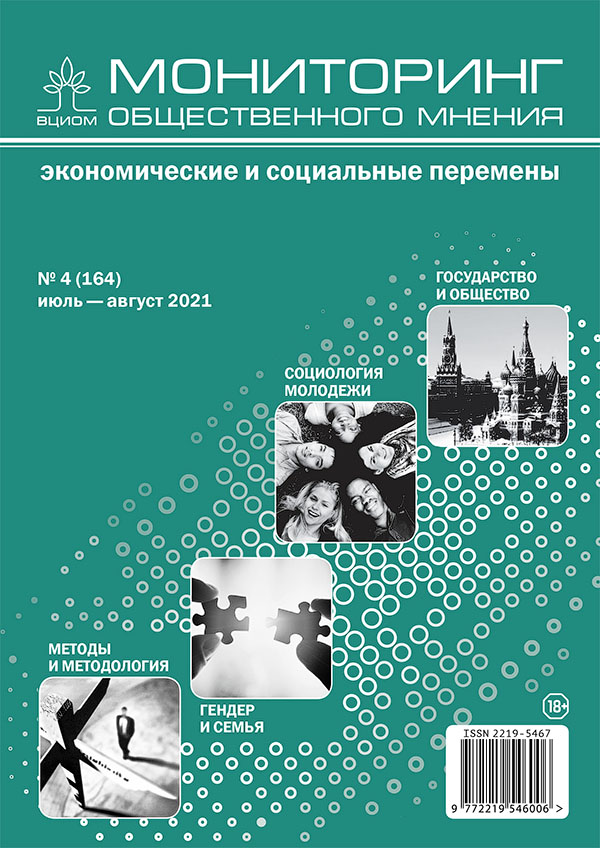Переход во взрослость российских миллениалов: на пути от получения образования к обретению ответственности и потере оптимизма?
DOI:
https://doi.org/10.14515/monitoring.2021.4.1832Ключевые слова:
молодежь, взросление, взрослость, поколение, миллениалыАннотация
В современном мире молодость выступает не только и не столько автономным этапом жизни человека, сколько периодом обретения компетенций и навыков, необходимых для взрослой жизни. Взрослость же рассматривается как ценность и цель, достижение которой дает человеку статус полноценного члена общества и «полноценной» личности. Классическая модель перехода во взрослость, сформировавшаяся в середине XX века, все менее релевантна изменившимся условиям современности. Актуальная социологическая дискуссия показывает, что достижение взрослости все так же связано с прохождением социо-демографических этапов, однако их последовательность и временная разметка в рамках биографий меняются. Более того, возрастает значение субъективно переживаемых характеристик взросления, таких как обретение автономности и ответственности.
Опираясь на доступные данные всероссийских репрезентативных ежемесячных опросов «Курьер» за 2018—2019 гг. и исследования «Российское “Поколение Z”: Установки и ценности», авторы анализируют переход во взрослость российского поколения миллениалов и демонстрируют, что для современной российской молодежи транзиция во взрослость начинается с получения образования и выхода на рынок труда, сопровождается повышением ответственности, но приводит к снижению удовлетворенности жизнью, ухудшению настроения и потере оптимизма.
Загрузки
Опубликован
Как цитировать
Выпуск
Раздел
Лицензия
Copyright (c) 2021 Мониторинг общественного мнения: экономические и социальные перемены

Это произведение доступно по лицензии Creative Commons «Attribution-NonCommercial-ShareAlike» («Атрибуция — Некоммерческое использование — На тех же условиях») 4.0 Всемирная.






